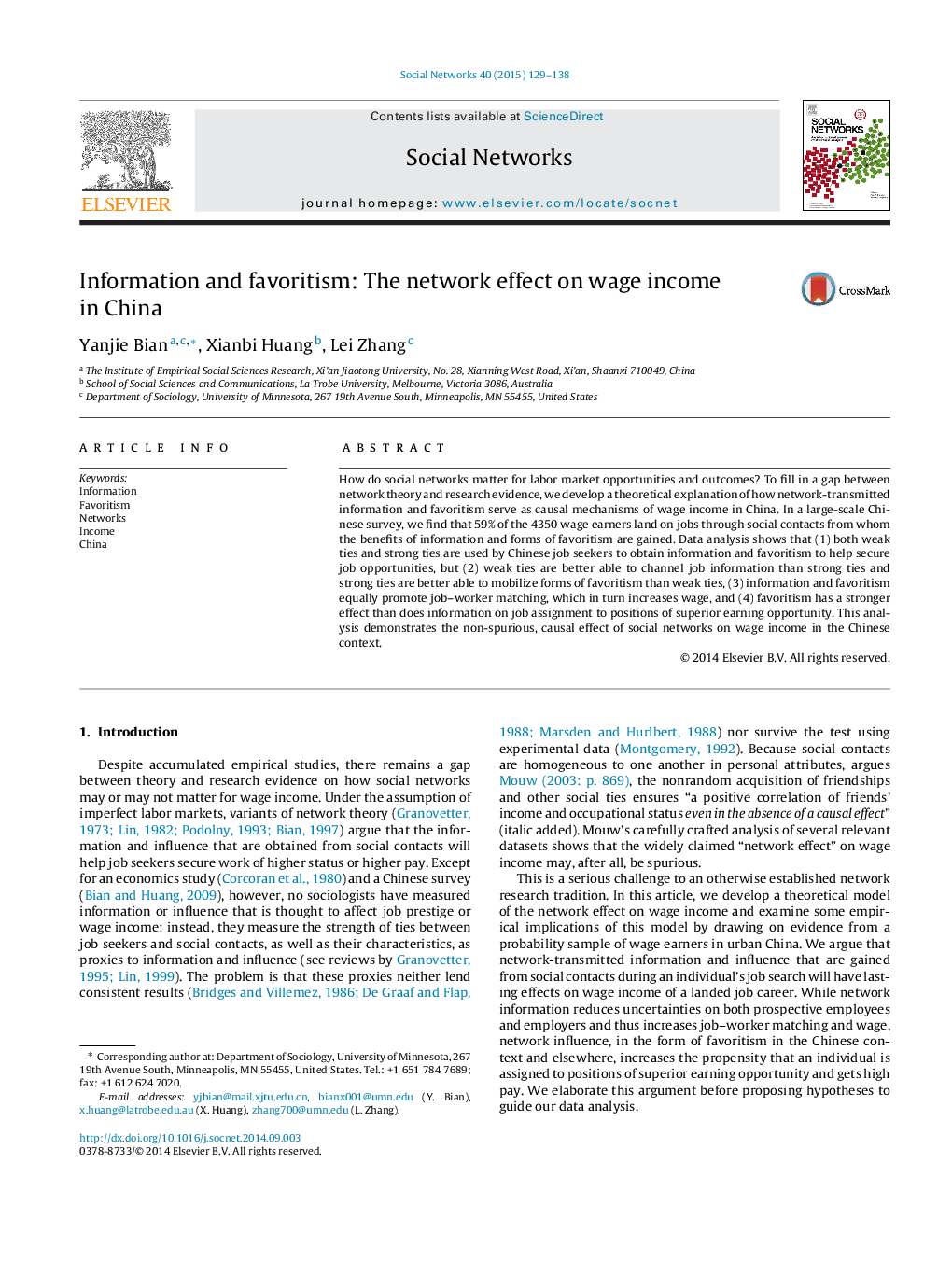| Article ID | Journal | Published Year | Pages | File Type |
|---|---|---|---|---|
| 1129161 | Social Networks | 2015 | 10 Pages |
•We examine how social networks matter for labor market opportunities and outcomes.•Information and favoritism serve as causal mechanisms of wage income in China.•Information and favoritism promote job–worker matching.•Favoritism has a stronger effect on job assignment to high-paid positions.•Findings show non-spurious, causal effect of social networks on wage income.
How do social networks matter for labor market opportunities and outcomes? To fill in a gap between network theory and research evidence, we develop a theoretical explanation of how network-transmitted information and favoritism serve as causal mechanisms of wage income in China. In a large-scale Chinese survey, we find that 59% of the 4350 wage earners land on jobs through social contacts from whom the benefits of information and forms of favoritism are gained. Data analysis shows that (1) both weak ties and strong ties are used by Chinese job seekers to obtain information and favoritism to help secure job opportunities, but (2) weak ties are better able to channel job information than strong ties and strong ties are better able to mobilize forms of favoritism than weak ties, (3) information and favoritism equally promote job–worker matching, which in turn increases wage, and (4) favoritism has a stronger effect than does information on job assignment to positions of superior earning opportunity. This analysis demonstrates the non-spurious, causal effect of social networks on wage income in the Chinese context.
